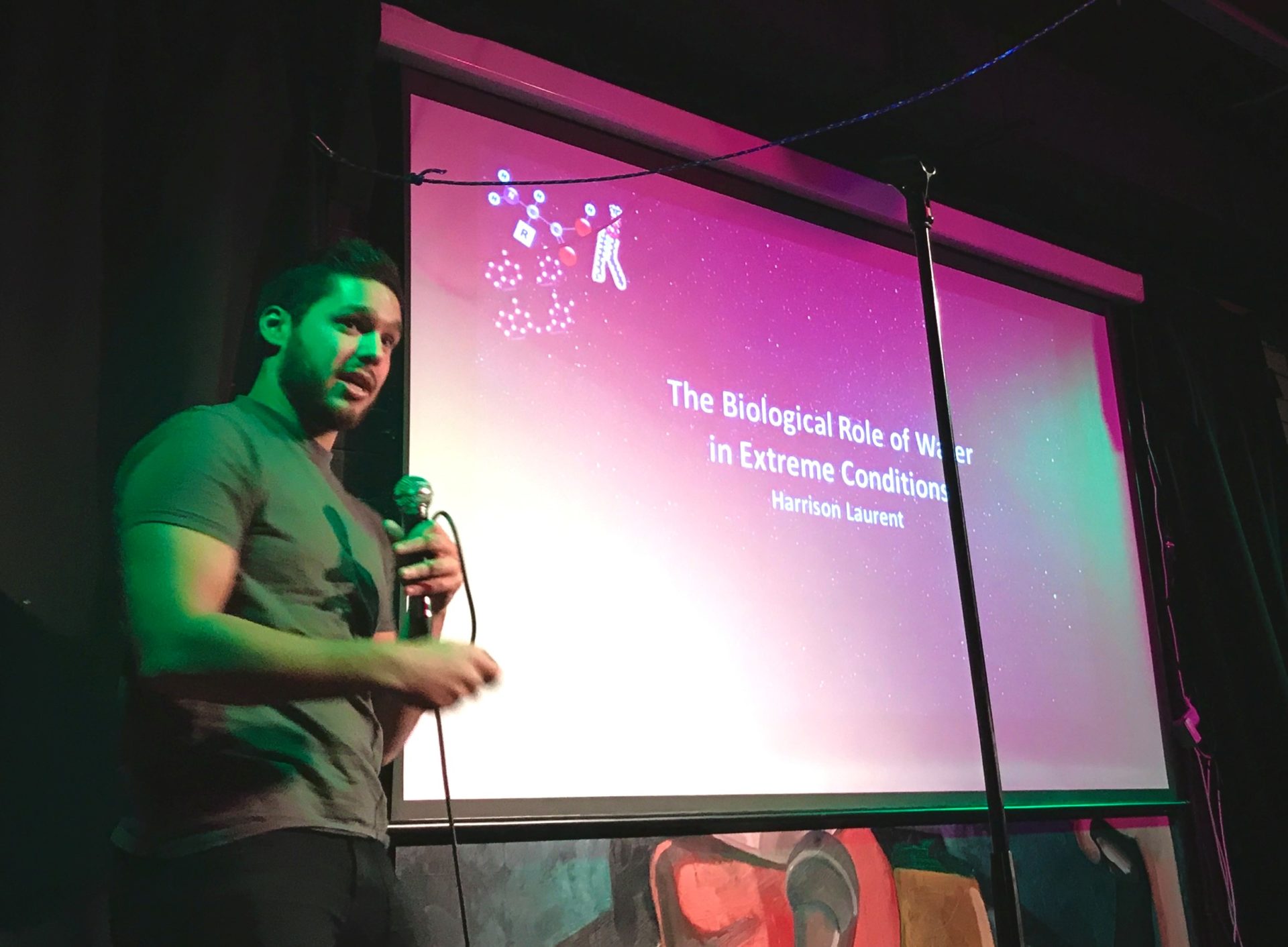Research Student Spotlight November - Harrison Laurent

Our monthly spotlight on the work and lives of the next generation of water@leeds researchers.
November 2021: Harrison Laurent
PhD title: The Biological Role of Water in Extreme Conditions
List of Publications: ORCiD
School of Physics and Astronomy
Supervisors: Prof Lorna Dougan (primary), Dr Alan Soper, Prof David Brockwell
Photograph: Harrison presenting his work at the north-eastern heats of the “3 Minute Wonder” competition in Newcastle in 2019: explaining his research to the general public within 3 minutes, with the help of a single slide and props.
Tell us a bit about yourself:
Being from a military family I moved around frequently as a child, living between the U.K, Germany, and the Netherlands, before settling in Luxembourg when my father retired.
Why did you choose Leeds University?
While considering what subjects to take for my International Baccalaureate I decided to email Leeds University for guidance to make sure my choices would be suitable for my intended physics undergraduate degree. I received a helpful and reassuring reply which cemented Leeds as one of my University choices. When I then had the opportunity to visit, I was impressed by the post-graduation employment statistics, the student run Physics society, the opportunities for summer research placements and the friendly, welcoming attitude of the students and staff.
What is your research about?
My research focusses on using neutron diffraction, computational modelling, and nuclear magnetic resonance to investigate how the structure and dynamics of water are perturbed in extreme conditions. This interests us as it gives as a fundamental understanding of how extremophile organisms may be able to survive in harsh environments. Through these techniques we have shown that “compatible solutes”, known to be accumulated by extremophiles, can restore the structure of water against perturbations due to high pressure, such as found in the deep sea, and even against highly damaging salts found in the subsurface Martian lakes, which in turn allows for their biomolecular stability.
What did you wish you knew before starting a PhD?
There is a temptation at the start of your PhD to immediately dive into published papers. This is an immensely steep learning curve, and it ends up taking hours to get through a single article as you are constantly having to stop to look up terms and techniques. Towards the end of my PhD I realised it was more sensible to go to the library and get books first, as these explain things from a more basic level, before going on to papers.
